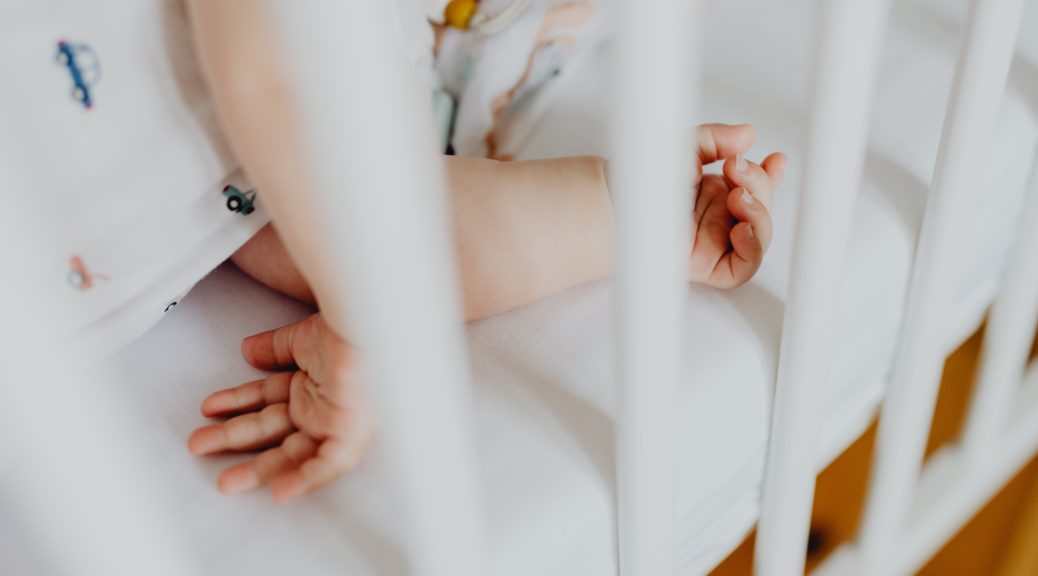
Infant sleep: does exclusive breastfeeding improve it or make it worse?
Infant sleep is one of the most worrying issues for families with a newborn or older baby. Certainly, the lack of knowledge of the physiology of infant sleep and its evolution as a developmental process makes families experience night awakenings as something out of the ordinary, in addition to the resulting fatigue that discontinuous sleep brings with it.
To date, the relationship between breastfeeding and the development of infant sleep is not clear: it is, in fact, a very controversial issue since the results of the published research on this subject are contradictory.
For example, some studies have observed a longer duration of nighttime sleep in breastfed infants (1,2). Still, other studies have not observed a significant association (3) or even point to a shorter duration of sleep in breastfed infants (4). A new scientific article has recently been published that provides new evidence on the subject (5).
The newly published research paper aims to examine the association of breastfeeding during the first 3 months with infant sleep duration at 3, 6, 12, and 24 months. In addition, it aims to explore the trajectories over time of infant sleep according to whether infants are exclusively breastfed for the first 3 months or not.
For this purpose, data from a cohort study conducted in Wuhan, China, have been analyzed. A total of 4056 mother-infant dyads were included, which were classified into 2 groups: exclusive breastfeeding at 3 months (n=2558) and non-exclusive breastfeeding (n=1498), where mixed and formula-fed infants were included.
Families were contacted at 3, 6, 12 and 24 months of age and were asked how long their children slept at night and during the day, excluding the times they woke up during the day or during the night.
They observed that exclusively breastfed infants slept significantly longer at 3, 6 and 12 months at night than those who were not exclusively breastfed. In addition, the authors classified total daily sleep hours into 3 groups: short (approximately 11 hours per day), moderate (13-14 hours per day) or long (more than 14).
They observed that infants in the non-exclusive breastfeeding group were significantly more likely to experience short rest periods at both 3 and 6 months (adjusted OR: 1.56; 95% CI: 1.12 to 2.16) and moderate periods at 3 months and short periods at 6 months (adjusted OR: 1.31; 95% CI: 1.06 to 1.61) than infants in the exclusive breastfeeding group.
Although this study is relevant because of its large sample size, variables related to infant sleep, such as sleep routine habits, use of infant sleep training programs or initiation, and type of complementary solid food, were not included. In addition, it should be taken into account that the results may have cultural biases and are, therefore, not transferable to the world population.
They also did not include information on breastfeeding beyond the first 3 months despite evaluating the infant sleep of the participating infants up to 24 months. Therefore, this study does not assess the impact of breastfeeding on continuous sleep development but only how the first 3 months of breastfeeding affect sleep, possibly neglecting to take into account the impact on subsequent stages of breastfeeding.
In conclusion, this new research provides new evidence that exclusive breastfeeding may improve nocturnal infant sleep during the first months of life. Nevertheless, more studies with better-controlled designs are needed to draw more conclusive results.
References:
1. Abdul Jafar NK, Tham EKH, Pang WW, Fok D, Chua MC, Teoh OH, et al. Association between breastfeeding and sleep patterns in infants and preschool children. Am J Clin Nutr [Internet]. 2021 Dec 1;114(6):1986–96.
2. Huang XN, Wang HS, Chang JJ, Wang LH, Liu XC, Jiang JX, et al. Feeding methods, sleep arrangement, and infant sleep patterns: a Chinese population-based study. World J Pediatr. 2016 Feb 1;12(1):66–75.
3. Ramamurthy MB, Sekartini R, Ruangdaraganon N, Huynh DHT, Sadeh A, Mindell JA. Effect of current breastfeeding on sleep patterns in infants from Asia-Pacific region. J Paediatr Child Health. 2012 Aug 1;48(8):669–74.
4. Nakagawa M, Ohta H, Shimabukuro R, Asaka Y, Nakazawa T, Oishi Y, et al. Daytime nap and nighttime breastfeeding are associated with toddlers’ nighttime sleep. Sci Rep. 2021;11(1):1–9.
5. Wang W, Huang L, Zhang X, Lin L, Chen X, Zhong C, et al. Association of Breastfeeding Practices During the First 3 Months with Infant Sleep Trajectories: A Prospective Cohort Study. J Nutr [Internet]. 2022;153(July 2022):562–8.